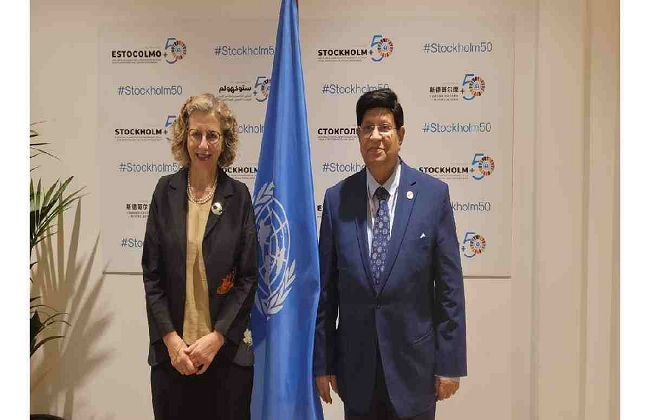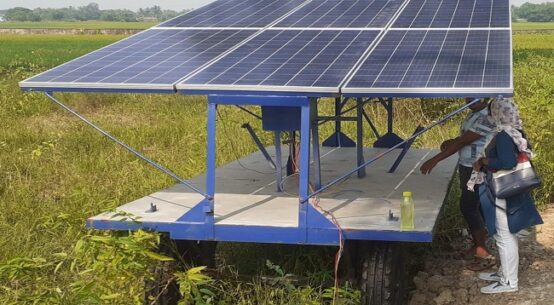
Foreign Minister AK Abdul Momen has said the international community is not doing enough for millions of ‘climate migrants’ who often get subjected to various forms of security risks and exploitations.
“Climate-induced displacement could lead to a global security risk in today’s interconnected world,” Momen warned while speaking at a roundtable on “Environment of Peace: Securing a just and peaceful transition in a new era of risk.”
He emphasized on the significance of creating global awareness on the climate-security nexus and an enforcement mechanism to address the challenges.
The event was organized by the Stockholm International Peace Research Institute (SIPRI) on the sidelines of the Stokholm+50 international meeting on Friday.
Momen stressed that the international community should share the burden of climate migrants’ rehabilitation, said the Ministry of Foreign Affairs on Saturday.
The Foreign Minister also held a bilateral meeting with the Swedish Minister for International Development Cooperation Matilda Ernkrans and discussed how to enhance cooperation on climate change, education and other areas.
He urged the Swedish Minister to put pressure on Myanmar for bringing back the forcibly displaced Rohingyas with safety and dignity.
Momen also underlined that the business-as-usual approach with Myanmar will not make any progress.
He met the Under-Secretary-General of the United Nations and Executive Director of the United Nations Environment Programme (UNEP) Inger Andersen and discussed how to strengthen collaboration with UNEP on environmental and climate issues.
The Executive Director applauded Bangladesh’s successful responses to climate change related challenges under the leadership of Prime Minister Sheikh Hasina.
She proposed to assist Bangladesh from the Climate Technology Fund, hosted by UNEP to address climate challenges.
Speaking at a Leadership Dialogue on “Achieving a sustainable and inclusive recovery from the covid-19 pandemic”, the Foreign Minister suggested overcoming the division between technology and economic interests and strengthening international cooperation for a sustainable and inclusive future for all irrespective of ethnicity, religion, colour, gender and political divide.
He also recommended increasing investment in climate adaptation, mitigation and resilience, changing food production and consumption patterns and stopping natural habitat and biodiversity loss.


